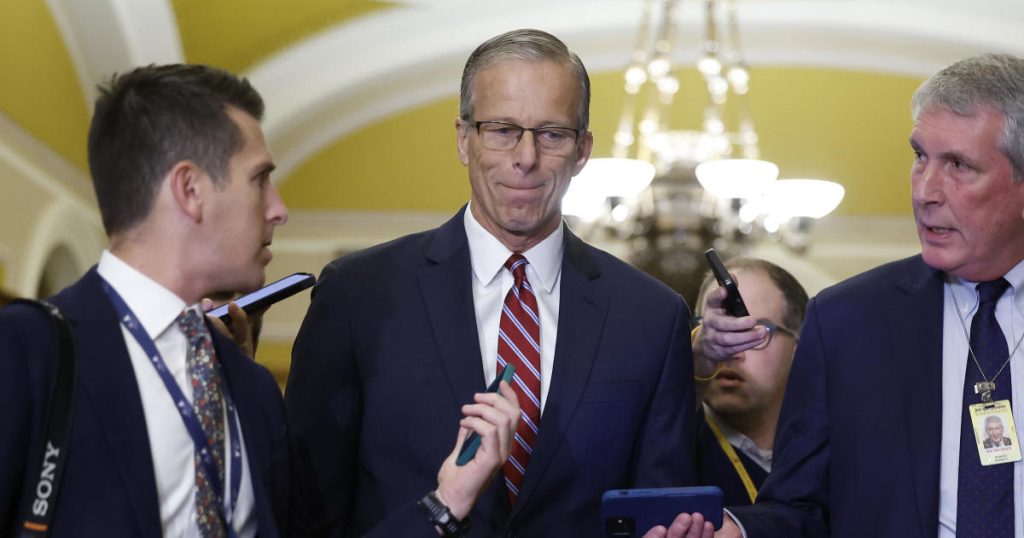Senate Republicans elected Sen. John Thune as their new leader, replacing Minority Leader Mitch McConnell, who chose to step down. Thune won 29 votes in the second round of voting, defeating former Whip Sen. John Cornyn, who received 24 votes. Sen. Rick Scott was eliminated after the first round. The Republican senators held a closed-door meeting to cast secret ballots, with Thune emphasizing the need for unity in the party and the importance of reclaiming the majority.
Thune expressed confidence in the Republican team’s ability to work together and implement President Trump’s agenda. He highlighted the need to address border security, remove violent criminals, streamline bureaucracy, overturn regulations, and restore energy dominance in America. Thune emphasized his commitment to representing the entire Republican conference, regardless of who they supported in the leadership race. With the GOP taking control of the Senate for the 119th Congress and Trump’s potential return to the White House, there are numerous legislative priorities to focus on.
The leadership race took on new significance following the 2024 elections, as Republicans gained control of the Senate and possibly retain control of the House. The role of the Senate leader will be crucial in working with Trump on legislative priorities. Trump’s influence was felt in the leadership contest, with his base supporting Rick Scott and urging for the confirmation of his nominees. Despite not making an endorsement, Trump’s demands for swift action were evident in the race. Thune, Cornyn, and Scott were vying for the top role, with Thune ultimately emerging as the winner.
In addition to electing Thune as leader, the Senate Republicans also selected the rest of the leadership slate, including Sen. John Barrasso as whip, Sen. Tom Cotton as conference chair, Sen. Shelley Moore Capito as Policy Committee chair, and Sen. Tim Scott as chair of the GOP campaign arm, the NRSC. Capito commended Vice President-elect Sen. JD Vance for his collaboration with the party, ensuring a united voice in government. Thune’s victory marks a new chapter for Senate Republicans as they prepare to work towards their legislative goals and support President Trump’s agenda.
Overall, the Senate Republicans’ leadership elections marked a significant moment for the party as they transitioned to a new leader, Sen. John Thune, following Sen. Mitch McConnell’s decision to step down. Thune emphasized unity within the party and the importance of enacting President Trump’s agenda. With the GOP in control of the Senate and the possibility of maintaining control of the House, there are numerous legislative priorities to address. Trump’s influence was evident in the leadership race, with a focus on supporting his nominees and advancing his priorities. Thune’s leadership will play a crucial role in guiding the party’s agenda and working with Trump on key issues.














